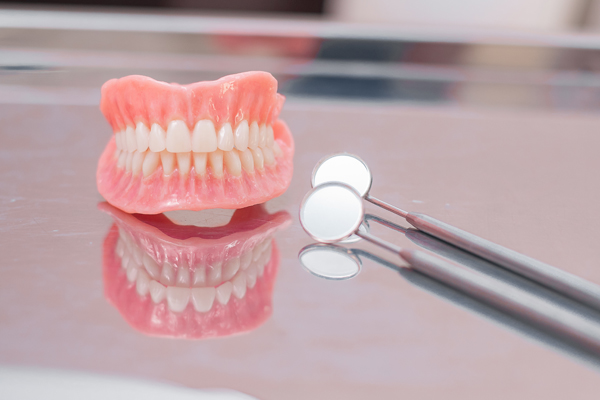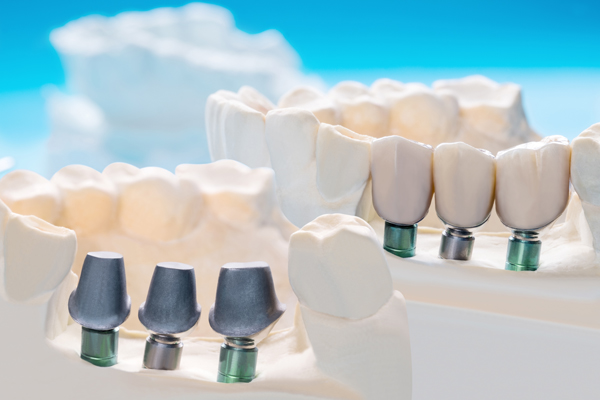Emergency Dentistry Procedures That Cannot Be Put Off During the Coronavirus Outbreak

According to the American Dental Association, due to the coronavirus outbreak, dentists are now advised to handle only emergency dentistry procedures and postpone elective treatments. Dental emergencies often vary in terms of severity. In some cases, certain measures can be taken to get temporary relief while waiting for a dental appointment. On the other hand, some dental treatments cannot be put off. Postponing treatment in such cases may result in serious complications.
Emergency dentistry procedures
The following are dental emergencies that require prompt treatment, regardless of the coronavirus outbreak.
Tooth repairs
A tooth can crack or break if exposed to more force than it can handle. A broken tooth could result from biting something hard like nuts, bones or ice, teeth grinding or from a hard fall. The teeth also weaken naturally due to aging. Regardless of the cause of tooth damage, an emergency appointment with a dentist is important to prevent further damage. If an appointment is not immediately possible, placing an ice pack on the area and using pain medication can help with the swelling and discomfort.
Dental trauma
Trauma is a common dental emergency that can lead to tooth loss. Accidents can be traumatizing and can potentially cause knocked-out teeth and excess bleeding. Fortunately, a knocked-out tooth can still be salvaged, but this depends majorly on timeliness, which means the procedure cannot be postponed. Keep the teeth moisturized in milk or clean water, call an emergency dentistry practice for an appointment and head to their office immediately. The dentist will give a thorough assessment to determine if saving the tooth is possible. If there is bleeding, they will attempt to stop it and alleviate the pain.
Severe toothache
Several factors can contribute to severe tooth pain. Treatment for toothaches cannot be put off during the coronavirus outbreak because the pain can be debilitating. Some dental procedures can cause pain, but the discomfort should not last more than a day or two. Pulp infection or abscess can also cause pain, which can make biting and chewing difficult. Other factors include injury or wisdom tooth inflammation.
All the instances mentioned above demand emergency dentistry care. The dentist will examine the tooth and determine the best treatment. The primary goal would be to relieve pain and stop any infection from spreading. They will explain what is wrong, but sometimes, extracting the tooth might be the only way to obtain relief.
Damaged dental restoration
A broken filling may not require urgent treatment, but it may quickly turn to an emergency if it causes pain and inflammation, which is when emergency dentistry care would be necessary. Inflammation occurs when bacteria invade the exposed tooth tissue. During the appointment with the dentist, they will try to eliminate the infection by removing any decay. The decay often occurs around the tooth and the filling. After removing the damaged filling, the dentist will provide a new filling. If a dental crown gets broken, the dentist will assess the tooth and provide a replacement.
Emergency dentistry care
When experiencing a dental emergency, do not hesitate to contact the dentist. Some emergency dentistry procedures cannot be postponed, so it is better to seek treatment without delay.
Request an appointment here: https://www.schommerdental.com or call Schommer Dental at (563) 272-2331 for an appointment in our Davenport office.
Check out what others are saying about our services on Yelp: Read our Yelp reviews.
Recent Posts
Are you looking for more information about denture adhesives? When you need to wear dentures so you can achieve good oral health, it is important to understand everything there is to know about dentures, including proper denture care. Denture care also includes potentially wearing denture adhesives.According to the Food and Drug Administration, in most cases,…
An implant dentist uses artificial tooth roots to anchor a restoration for a lost tooth or teeth. By replacing the lost tooth roots, dental implants provide you the strength and stability needed to chew food and perform other oral functions. Also, they help to stimulate and preserve jawbone structure, stopping bone loss, and maintaining facial…
Individuals that have recently been diagnosed with sleep apnea may be considering all of the different options for treatment in order to get a restful night of sleep. While one may feel like a cumbersome sleep machine, such as a bi-PAP or CPAP, is the only option, there may be some less invasive options that…
There are many options that you can consider when looking at partial dentures. They can come in several different materials and varieties. Let’s take a look at each one, taking both the pros and the cons into account.Acrylic dentures are probably the most commonly used variety. There are several benefits to them. First, they can…


